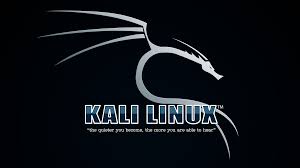Kali Linux is a cornerstone in the realm of cybersecurity and ethical hacking, revered for its versatility and comprehensive suite of tools. Whether you’re a budding ethical hacker or an experienced security professional, Kali Linux offers an unparalleled platform for penetration testing, vulnerability assessment, and digital forensics.
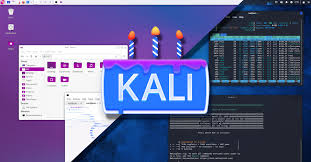
Kali Linux is a Debian-based Linux distribution designed specifically for cybersecurity tasks. Developed and maintained by Offensive Security, it comes preloaded with hundreds of tools that cater to various security operations. From network analysis and vulnerability scanning to digital forensics and reverse engineering, Kali Linux has it all.
Originally a successor to BackTrack Linux, Kali was released in 2013 with a focus on ease of use and integration for security professionals. Its open-source nature ensures continuous development and community-driven improvements, making it a go-to operating system for ethical hackers worldwide.
Why Do Hackers Use Kali Linux?

Hackers, both ethical and malicious, gravitate towards Kali Linux for several reasons:
Extensive Toolset
Kali Linux boasts over 600 pre-installed tools covering the entire spectrum of cybersecurity needs. Popular tools include:- Nmap for network discovery.
- Metasploit for penetration testing.
- Wireshark for network protocol analysis.
- John the Ripper for password cracking.
Customizability
Users can tailor Kali Linux to suit specific tasks. Its open-source nature allows modifications, and advanced users can compile their own version of Kali.Community Support
With a large, active community, Kali Linux users benefit from extensive documentation, forums, and tutorials. This robust support network ensures help is always available, whether you’re troubleshooting or looking for advanced tips.Portable and Lightweight
Kali Linux can run on various platforms, including low-resource environments. Its ability to operate as a live boot system makes it an excellent choice for on-the-go penetration testing without leaving a trace.Trusted by Professionals
Kali is a staple in the cybersecurity industry. Its reliability and constant updates make it a trusted platform for training and real-world applications.
How Much RAM is Needed for Kali Linux?
The hardware requirements for Kali Linux are surprisingly modest, which adds to its popularity:
Minimum Requirements
Kali Linux requires at least 2 GB of RAM to run the graphical user interface smoothly. However, using tools in a headless setup (command-line only) can function with even less memory, typically around 512 MB.Recommended Configuration
For optimal performance, especially when multitasking or running resource-intensive tools like Metasploit, 4 GB or more of RAM is recommended. If you’re working with virtual machines, allocating 8 GB of RAM or more ensures a seamless experience.
Can Kali Linux Run on Windows?
Yes, Kali Linux can run on Windows, thanks to advancements like the Windows Subsystem for Linux (WSL). Here are the main methods to use Kali on a Windows system:
Windows Subsystem for Linux (WSL)
WSL allows Windows users to run Linux distributions natively without requiring a dual boot or virtual machine. Kali Linux is available on the Microsoft Store, making installation straightforward.- Pros: Seamless integration with Windows, lightweight, and quick setup.
- Cons: Limited hardware access and some tools may not work as effectively.
Virtual Machines
Using software like VirtualBox or VMware, you can install Kali Linux as a virtual machine on your Windows system.- Pros: Complete Linux environment with full functionality.
- Cons: Requires significant system resources.
Live Boot
By creating a bootable USB drive, you can run Kali Linux directly from the USB without affecting your Windows installation.- Pros: No installation required, leaves no trace on the host system.
- Cons: Requires a reboot and doesn’t support persistent changes without additional setup.
Dual Boot
For a full-fledged experience, you can set up a dual-boot system with both Windows and Kali Linux.- Pros: Full functionality and resource access.
- Cons: Requires partitioning and careful setup to avoid data loss.
Benefits of Using Kali Linux for Penetration Testing
Comprehensive Ecosystem
With tools for every phase of penetration testing, from reconnaissance to exploitation, Kali Linux is a one-stop shop for ethical hackers.Constant Updates
Regular updates ensure the tools and the operating system itself are up-to-date with the latest vulnerabilities and exploits.Wide Compatibility
Kali Linux supports a broad range of devices, from traditional desktops to ARM-based systems like Raspberry Pi.Learning Opportunities
Beginners can dive into ethical hacking with Kali Linux’s resources, while experts can refine their skills with advanced features.Cost-Effective
Being open-source, Kali Linux is free to use, making it accessible to anyone passionate about cybersecurity.
Challenges and Considerations
Despite its benefits, using Kali Linux comes with challenges:
Steep Learning Curve
Beginners may find the vast toolset overwhelming. However, with patience and practice, the learning curve becomes manageable.Not for Daily Use
Kali Linux is designed for security professionals and is not optimized for general-purpose use. Using it as your primary OS may lead to compatibility and usability issues.Legal Implications
Misusing Kali Linux’s powerful tools can lead to serious legal consequences. Always use Kali Linux ethically and within the boundaries of the law.
Conclusion
Kali Linux stands as a powerful ally for penetration testers and ethical hackers, providing a robust, flexible, and cost-effective platform for cybersecurity tasks. Its extensive toolset, community support, and adaptability make it a preferred choice for professionals and enthusiasts alike.
Whether you’re running it on a lightweight system with 2 GB of RAM or leveraging WSL on Windows, Kali Linux opens the door to a world of possibilities. However, with great power comes great responsibility—always use Kali Linux ethically to enhance cybersecurity and protect against digital threats.
Why Businesses Trust SecureMyOrg for Comprehensive Network Security
At SecureMyOrg, we uncover and fix all possible security vulnerabilities of mobile and web, while providing solutions to mitigate risks. We are trusted by renowned companies like Yahoo, Gojek and Rippling, and with 100% client satisfaction, you’re in safe hands!







Some of the things people reach out to us for –
- Building their cybersecurity program from scratch – setting up cloud security using cost-effective tools, SIEM for alert monitoring, building policies for the company
- Vulnerability Assessment and Penetration Testing ( VAPT ) – We have certified professionals, with certifications like OSCP, CREST – CPSA & CRT, CKA and CKS
- DevSecOps consulting
- Red Teaming activity
- Regular security audits, before product release
- Full time security engineers.
Relevant Posts

Top Cybersecurity Threats Facing Businesses In 2026
Businesses entering 2026 face a security landscape that is more complex, more interconnected, and far less forgiving than in previous years. Cybersecurity threats no longer

Top 5 Security Weaknesses Cloud-Native Apps Commonly Ignore
Cloud-native applications promise speed, flexibility, and scalability. Teams ship features faster, infrastructure adapts automatically, and operational overhead drops. Yet many organizations discover later that security
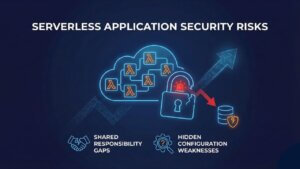
Why Weak Serverless Application Security Puts Your Business at Risk
Weak security in serverless environments often goes unnoticed until it leads to real damage. Misconfigured triggers, broad permissions, and poor visibility can expose sensitive data and disrupt business operations. Understanding where the risks appear is the first step toward building safer, more reliable serverless applications.
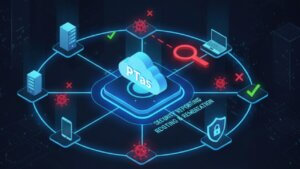
What Is Penetration Testing as a Service?
Penetration testing as a service (PTaaS) lets experts simulate real attacks to uncover vulnerabilities before hackers do. This guide explains the process, benefits, and costs, helping businesses strengthen defenses with predictable, ongoing security checks.
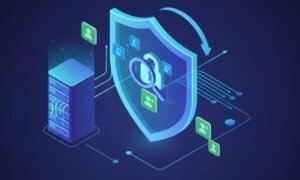
How To Inspect Encrypted Traffic Without Breaking Privacy
Network administrators face a challenge: securing systems while respecting privacy. This guide explains how to inspect encrypted traffic without breaking privacy using metadata, anomaly detection, and machine learning ensuring visibility, compliance, and trust.

How to Audit Infrastructure as Code (IaC) for Security Vulnerabilities
Discover how to audit Infrastructure as Code (IaC) for security vulnerabilities with this practical guide. Learn to scan IaC files using tools like Checkov, fix issues like exposed resources, and integrate audits into CI/CD pipelines. Protect your cloud systems from misconfigurations and ensure compliance with clear, actionable steps.
